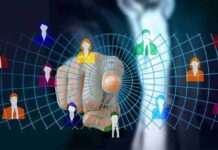Increased competition, industry sector consolidation, globalization, changing market conditions and cultures, and rapid technological innovations are transforming organizations and having a significant impact on the Human Resources (HR) and Human Capital (HC) functions.
HR leaders are quickly becoming key change leaders, going beyond the role of traditional HR and helping to shape their organization’s direction and success.
HR Leaders must focus on a change and communicate the plan well in advance. The involvement of experienced change agents that can design, plan, and effectively enable organizations to build a solid infrastructure and support system, as well as successfully get employees to embrace change is essential.
It is critical for HR leaders to involve the rest of the HR organization from the initial stages of massive redesign. Key executives in the business must be privy to changes within HR. Robust change management plans for HR and appropriate toolkits that HR professionals can leverage to manage the changes in HR support to businesses are a must. Communication can make or break the HR function.
Careful attention must be paid to source, select, and hire HR professionals during a time of HR transformation. Human Resources leaders should not hire someone simply based on the experience required to support line managers or business leaders. Instead, they should move away from pure experiential and traditional HR competencies. New hires in HR should be change agents and champions of progressive HR functions. Much time needs to be spent in evaluating and updating internal HR capabilities and competencies.
HR Leader/ change Management Leader should Address the Following Critical Hurdles ,in HR Transformation.
- Capability of line management
- Skills within HR departments
- Business perception of HR’s “value”
- Time Management
- HR structures and reporting lines
- Business leadership
- Business desire for HR strategic activity
- Effective use of technology
- Understanding difference between ‘HR Best Practice’ and ‘HR Maturity’
The transformation of the HR function to one that can demonstrate its value to the business remains a challenge. The effective use of HR technology might facilitate a move for the HR function to a more evidence based, agile and collaborative model of managing HR that might in turn allow HR to have a demonstrable impact on business performance, regardless of the size of the organization.
Recently, Agile model plays vital role in the HR Transformational / Change Management in many organizations.
As Dave Ulrich, stated that HR practices around people, performance, information, and work can be crafted to foster strategic, organization, and individual agility.
- People can be hired, promoted, and trained to indicate and encourage organizational and personal agility. For example, agility can become a behavioral factor in talent choices.
- Rewards can be aligned to agility or the ability to change and adapt. Financial incentives can be predicated on agility skills like learning and change. Non-financial rewards can indicate the importance of agility also.
- Information can be shared about successful change efforts to illustrate both successful and unsuccessful change. This became standard in so many companies to ensure that lessons learned from one setting to other.
- Finally, work can be organized to foster agility. Agile firms are increasingly creating high-performing teams who focus on market opportunities.
RECENT TRANSFORMATIONS IN HR
Re-Designing the HR Practices & Processes –An increasing greater role for technology and particularly data has the potential to radically shift HR practice and processes. These new challenges in the need for HR professionals to improve digital literacy and skills in order to maximize the possibilities created by new technologies and adapt to the rapidly shifting organizational context that surrounds them.
Leading Client success and digital transformation Now Client Success and digital Transformation are both acting as key drivers for shifting HR practice as many organizations to focus and culture around customer-centric strategies. As businesses transform to become ‘fit-for-purpose’ for a rapidly changing digital world, the HR function is playing a critical role in supporting change through a heightened focus on culture, learning and employee engagement.
Re- inventing Recruitment Process –Due to shifting organizational priorities creates high demand for talent in particular fields and creating challenges for HR to recruit rare but high-demand talent. As a result, recruitment processes are being reinvented.
Performance Management System-Rapidly changing contexts are impacting performance management processes, as organizations seek to be more adaptive and rely on more regular, informal feedback rather than rigid annual performance reviews and ratings. Many Organizations eradicating the Traditional Bell-Curve Method and opting for regular feedback method.
Employee Empowerment-As businesses seek to move faster, employee and team autonomy and empowerment have taken on a new level of importance. The HR function is playing a key role in encouraging employee ownership and empowerment in the Organizations.
Leadership and Culture-There are many researches shows that in the context of the increasingly agile, digitally-empowered operating environment, the qualities that define great leadership are changing. HR and learning professionals are refocusing leadership development programs on enhancing not only traditional leadership skills, but ‘softer’ skills that can enable greater collaboration, entrepreneurialism and the ability for the business to move fast. A key part of this is focusing not only on knowledge, but on the behaviors that can establish organizational norms and support the right culture for agility.
 Author– Sankar Ponnuswamy is HR professional with 13 years of industry exposure. Currently he is associated with Hyundai Autoever , an IT division of HYUNDAI Motor Group.
Author– Sankar Ponnuswamy is HR professional with 13 years of industry exposure. Currently he is associated with Hyundai Autoever , an IT division of HYUNDAI Motor Group.









